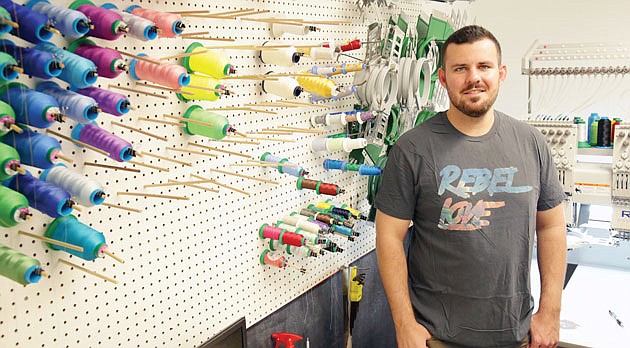- July 26, 2024
-
-
Loading

Loading

Sam Lewis was a University of Florida junior when he had what he calls his “brick-wall epiphany.” He was determining the next 30-40 years of his life. Says Lewis: “It was a concrete wall I couldn't pass through without making a decision.”
He sought a future that was financially stable, but one that also satisfied his desire to help people. “It was literally me asking myself, 'WTF?' in its common, explicit form of, 'What am I doing with my life?'” Lewis recalls.
He researched opportunities that could provide a mix of purpose, profit, innovation and adventure. For-profit business models that were cause-motivated, such as Tom's Shoes, sparked Lewis's inspiration, and that's how he and his brother, Joshua Lewis, created Wear the Fund in 2010. Tom's Shoes donates a pair of shoes to a child in need for every pair of shoes it sells, what the company calls One for One.
Lewis, 26, substitutes T-shirts for shoes with Fort Myers-based Wear the Fund, a wholesale screen-printing apparel company. On the name, Lewis intentionally chose a moniker that could go by the letters WTF, to spin a positive association on the common acronym for what the ...
The Wear the Fund model is to donate 5% of its revenue from each order to a charity of the client's choosing. Wear the Fund has worked with 45 nonprofit campaigns so far, including the Make-a-Wish Foundation, Ronald McDonald House and the Alzheimer's Association. Lewis hopes to grow the list of affiliated nonprofits.
“One of Wear the Fund's reasons for being is creating a world where profit is not the bottom line,” says Lewis, who has added several business partners since he and his brother launched the for-profit company.
Lewis learned how to screen-print clothing through YouTube, and initially hand-pressed all orders out of his garage. Soon, friends and family referred group orders, in the 25- to 75-piece range. “That's really when it became a grassroots movement,” says Lewis.
Within his first six months, Lewis landed a 1,000-shirt order from a TED Talks conference at his alma mater. In 2013, the company secured an order for the Alzheimer's Association for 8,000 shirts.
Orders grew from $50,000 in 2013 to $475,000 at the end of 2016, up 850%. Wear the Fund's offerings include hats, towels and bags, as well as T-shirts in varying degrees of quality — all eligible for custom screen-printing and embroidery. Clients range from nonprofits needing event-participation shirts to companies wanting uniforms or promotional apparel. Bands and social groups are customers, too. Lewis's first order, for a CPA's clients, was for 50 baby bibs that read “My newest tax write-off.”
So far, Lewis handles all the marketing, mostly through social media. Eventually, he hopes to grow sales through a regional advertising campaign.
Beyond shirts, Lewis says he's still fine-tuning the philanthropic side of the model. “Originally, we were donating 10%,” he says. “That was back when I knew nothing about the industry.”
“This year we made adjustments and our gross profit's up 280%, and our bottom line is up over 100%,” says Lewis.
Lewis believes the giveback business model will disrupt consumer purchasing in the coming decades. “Big businesses cut a check to their favorite nonprofit, and that is great,” says Lewis. “But from a PR standpoint, from an efficiency standpoint, why not make that connection between your clients and the nonprofit they like?”
Lewis is optimistic that more companies will follow suit (like Amazon Smile) as entrepreneurs recognize the upsides for their company, customers and community. “That was the idea I had, to allow people to pick something that was personal to their life story,” Lewis says. “It's a full-circle benefit for everybody.”
Wear the Fund has donated more than $95,000 to various causes since Lewis's first order in August 2012.
Going forward, he hopes Wear The Fund's social contributions will create a lasting legacy that reaches beyond his years. “What you leave behind,” says Lewis, “what you create in this lifetime does carry on forever.”